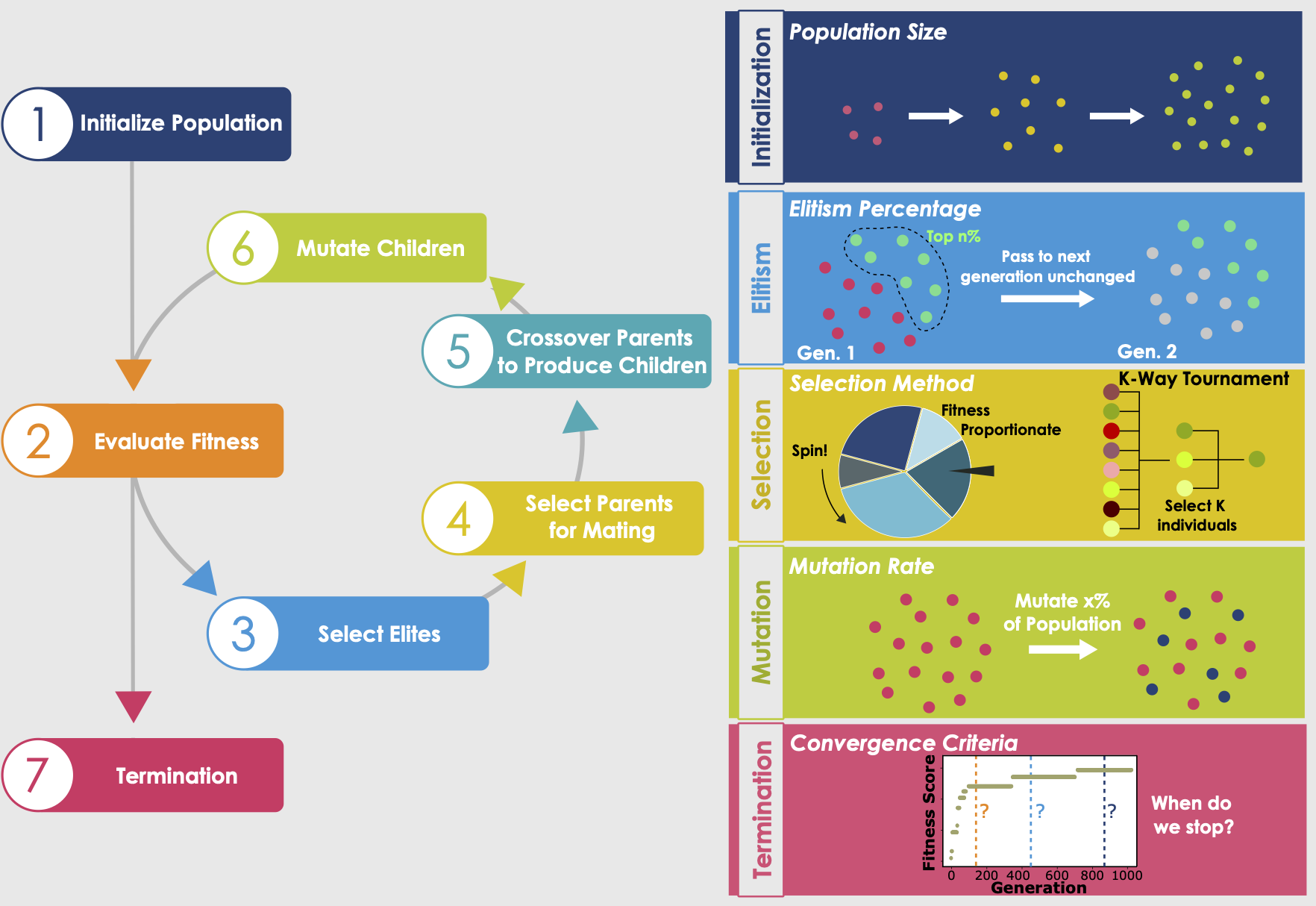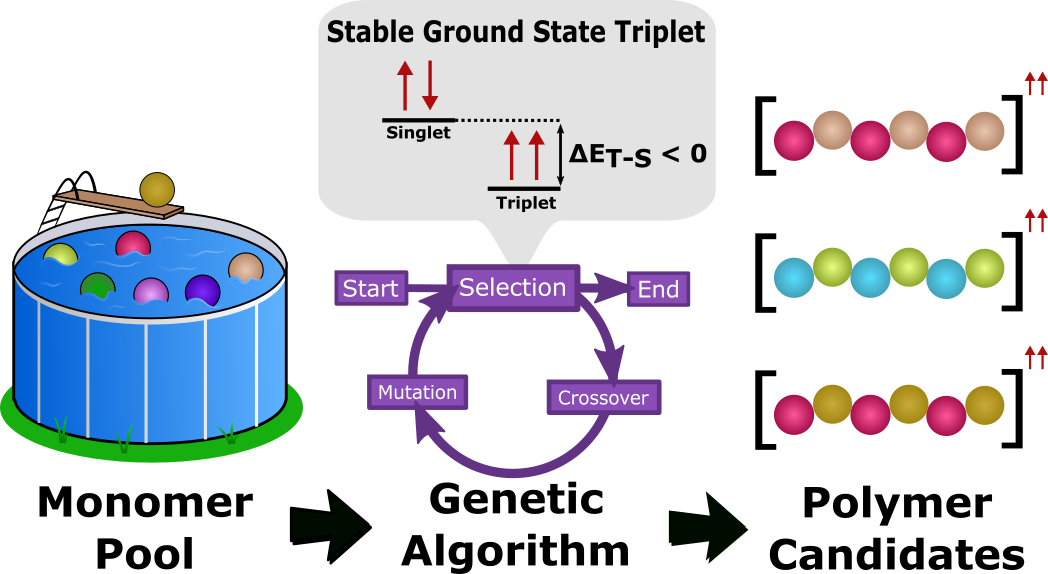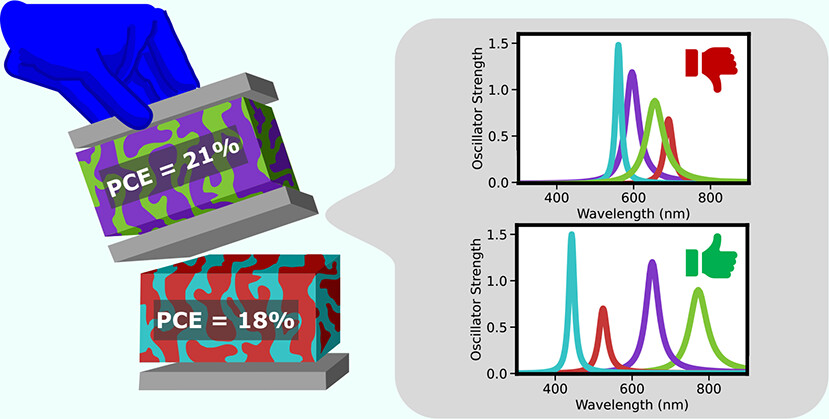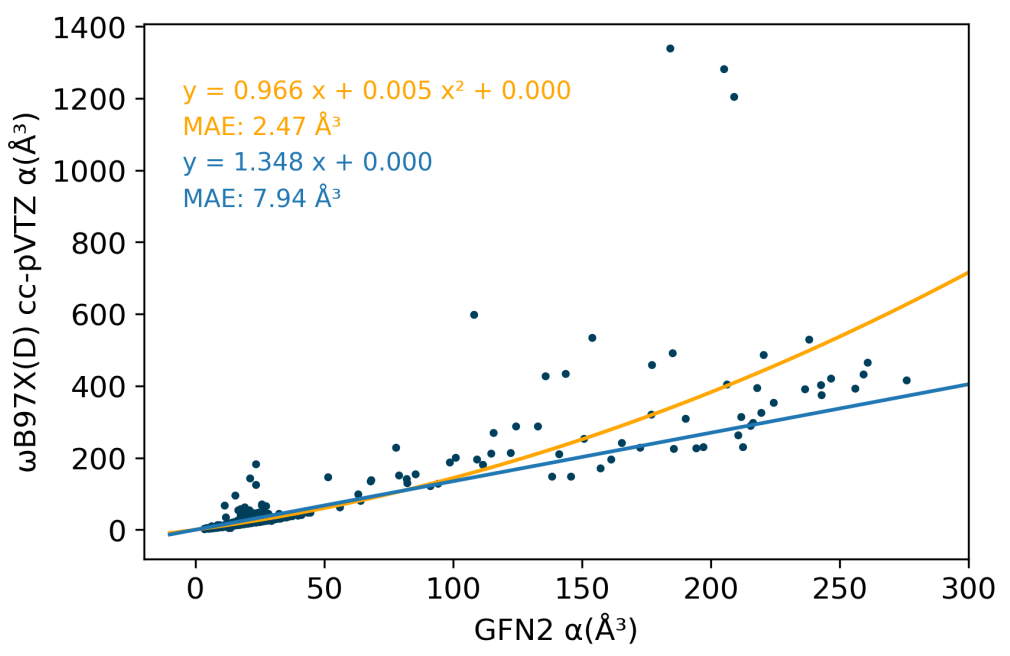Rapid Computational Discovery of Materials
We seek to use a variety of optimization methods to solve the rational “inverse design” of materials – finding the chemical or molecular compositions with desired properties. The key challenge is that molecular and materials “design space” is astronomically large, estimated to be 1060 stable small molecules alone, often with conflicting properties (e.g., balancing molecular size and solubility).
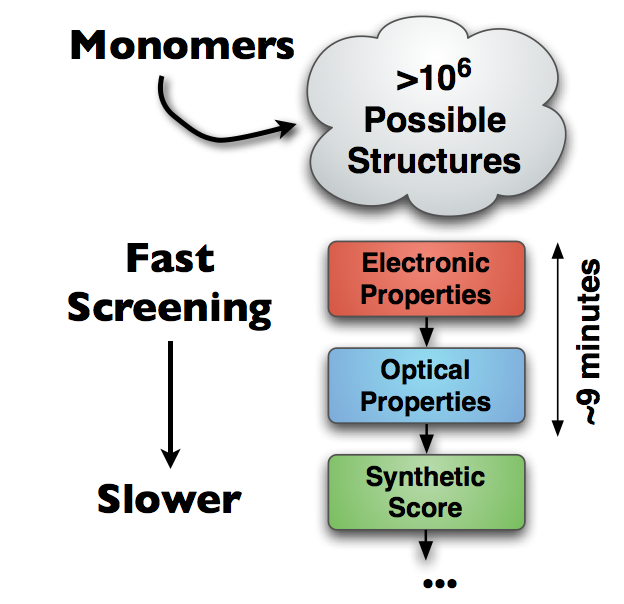 Our work so far has demonstrated the speed and efficiency of genetic algorithms to find polymers and oligomers with desired properties using quantum chemical predictions. We seek to expand this work to properties including polymer morphology, energy storage, metal organic frameworks and more.
Our work so far has demonstrated the speed and efficiency of genetic algorithms to find polymers and oligomers with desired properties using quantum chemical predictions. We seek to expand this work to properties including polymer morphology, energy storage, metal organic frameworks and more.
We also seek to accelerate our methods using machine learning methods as fast approximations of computationally-intensive quantum chemical methods. The GA methods can, at the same time, generate new candidates for diverse data sets and accurate training data for ML methods.
Recent Publications:
Determining Best Practices for Using Genetic Algorithms in Molecular Discovery
Brianna L. Greenstein, Danielle C. Elsey, Geoffrey R. Hutchison. “Determining Best Practices for Using Genetic Algorithms in Molecular Discovery” J. Chem. Ph...
Using genetic algorithms to discover novel ground-state triplet conjugated polymers
Omri Abarbanel, Geoffrey R. Hutchison. “Using genetic algorithms to discover novel ground-state triplet conjugated polymers” Phys. Chem. Chem. Phys., (2023),...
Screening Efficient Tandem Organic Solar Cells with Machine Learning and Genetic Algorithms
Brianna L. Greenstein, Geoffrey R. Hutchison. “Screening Efficient Tandem Organic Solar Cells with Machine Learning and Genetic Algorithms” J. Phys. Chem. C ...
Evaluating Fast Methods for Static Polarizabilities on Extended Conjugated Oligomers
Danielle Hiener, Dakota Folsmbee, Luke Langkamp, Geoffrey R. Hutchison. “Evaluating Fast Methods for Static Polarizabilities on Extended Conjugated Oligomers...
